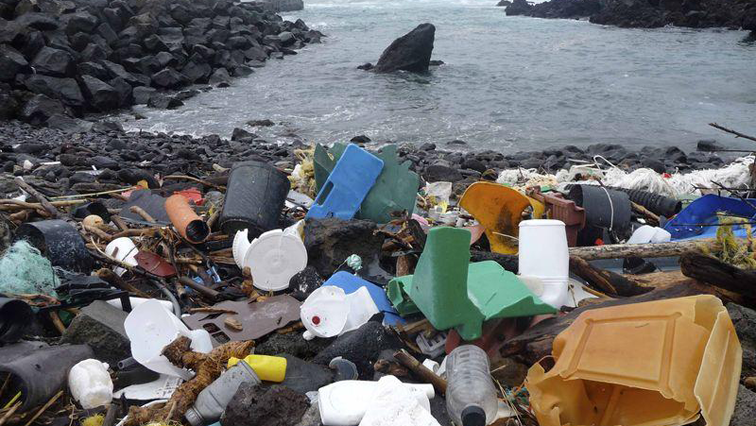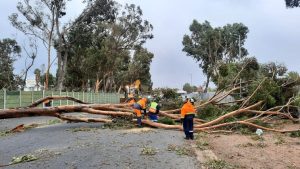It is said that every minute, one garbage truck of plastic is dumped into the South African oceans.
Environmental groups say if nothing changes by 2050, there will be more plastic in the oceans than fish by weight.
South Africa is ranked as one of the top 20 worst polluters of plastics in the oceans. South Africa occupies the southern tip of Africa, its coastline stretches more than 2 500 kilometres from the desert border with Namibia on the west to the border with Mozambique on the east.
At first sight, the oceans appear pristine but they are fast becoming the biggest dumping site on earth.
Environmentalists say plastic bags, pesticides and other waste produced on land eventually end up in the ocean.
WWF-SA’s John Duncan says: “The impacts of plastic pollution are far broader than what we understand. The reality is we are putting around 8 million tons of plastic into the ocean every year and that plastic has a number of impacts from strangulation of animals but also importantly we it is the ingestion of plastic that kill animals.”
It is especially marine life that is affected daily and suffers most from plastic pollution.
High concentrations of the material end up blocking the breathing passages and stomachs of many marine species.
Ocean Aquarium’s Renee Leeuwner says: “We are finding that more and more turtle hatchlings that are coming in that have ingested plastics. They are predominantly drifters on ocean currents and micro plastics are also floating on the currents and turtles mistake it for food and end up eating it.”
“We are seeing the seals here in the harbour getting entangled in nooses and we have a program to help combat that.”
The world’s oceans are the planet’s life support system. They produce 70% of oxygen for humans and absorb vast amounts of carbon dioxide.
They are also an essential source of food, feeding over a billion people.
Environmentalists say humans need to urgently change their habits and find other ways of dealing with the waste they produce.
Click video below:






